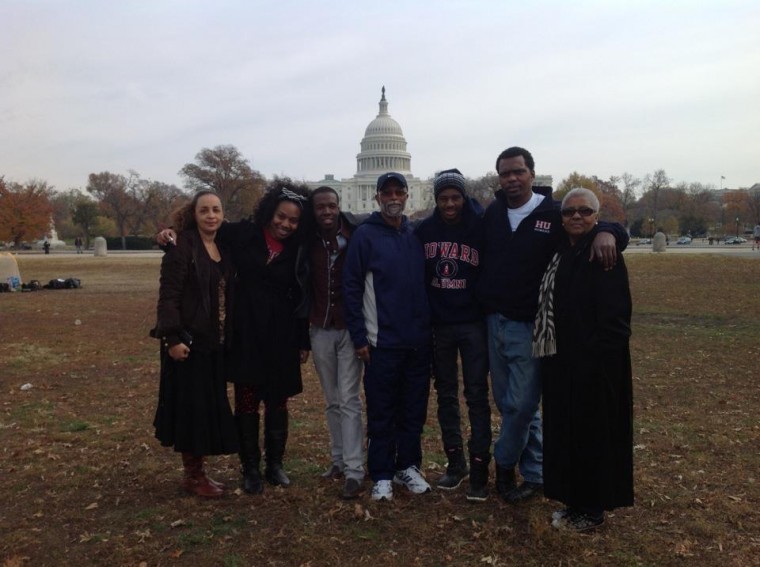Students from UMass Boston, along with Professor Jemadari Kamara of the Africana Studies department, joined Pan-African scholars and activists from across the African World at the State of the Black World Conference III at Howard University, in Washington D.C. from Nov. 14-18, 2012. The theme of the conference was “Healing Black families in America and the Diaspora.”
Diaspora, in this sense, refers to the scattering of Africans—and indeed everyone of African descent—to continents outside of their homeland, specifically the US.
Dr. Leonard Jeffries, a professor of Black Studies at the City College of New York and former President of the World African Diaspora Union (WADU) said, “We [Africans] need to understand our sense of humanism.” He stressed that we need to believe in who we are, and not accept others’ definitions of us, because then we become those definitions.
“The diaspora is a necessity. It is essential to African continental development. However, internal development is the key,” Dr. Jeffries said. He emphasized that Africans outside of the continent are in a better position to observe and analyze the reasons for the pitiful socio-economic conditions of most African countries. Nevertheless, the understanding of humanism is critical to African empowerment—social transformation, positive self-image and conscious awareness of who you are as an individual. Understanding one’s humanism in this way can change a person for the better.
Along this line, Dr. George Fraser, the chairman and CEO of FraserNet, Inc., cried out in a rhetorical vein, “We are the only generation that is worse off than previous one.” Africans nowadays do not feel an urgent need to come together to fight the repressive forces of the current system which institutionalizes racism. For example, there is no counter movement against the media’s racist portrayal of black families and African culture.
Regarding this issue, I am of a similar notion as Dr Frasier—dispersion is not the problem, but the lack of connection and bonds between African families is what proves problematic. He quotes this African proverb, “When spiders unite, they can lock up a lion.”
When—and if—people of African descent can connect again, only then can we develop the self-reliance, resolve and strength necessary to do great things.
The Black and African families in America need to stop playing the blame game. We need to take our destiny in our hands; we need to learn to trust and love one another. As Professor Kamara noted, “They have everything to succeed except each other.”
This statement by UMass Boston students Caroline Parker, Kenneth Delaney, Lanyu Zheng, and Shatwuan Lewis is as profound as it is simple: “The keys to healing Africa’s profound socio-economic wounds are the Africans in the diasporas’ realization of their identity, activism on the part of the black youth, and the need for national leaders who claim to stand by Africa to make good on their promises as opposed to selling out the issues to get elected and fill their pockets.”
When this happens, Africa will rise up again like a phoenix from the depth of the ashes.





















































